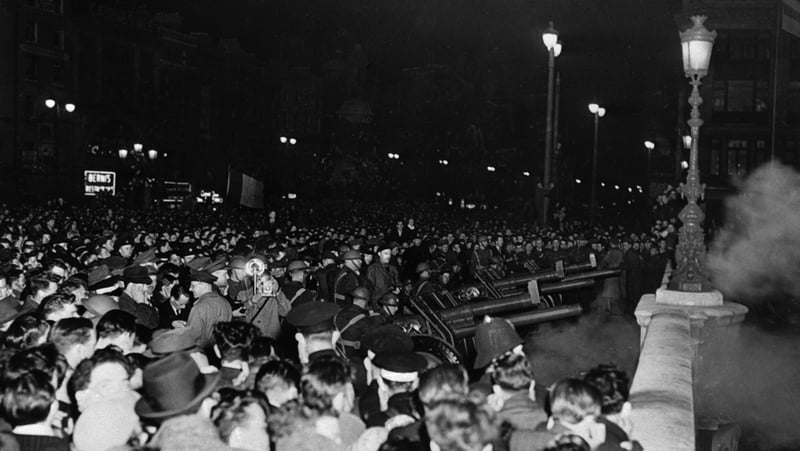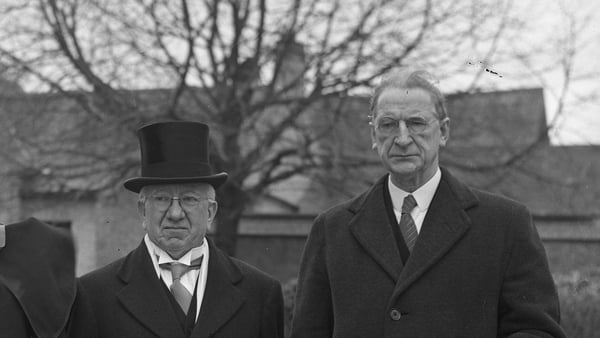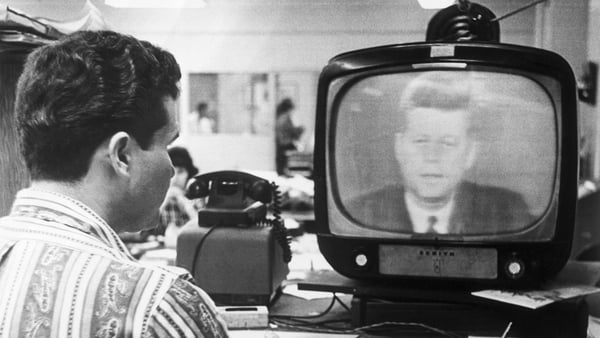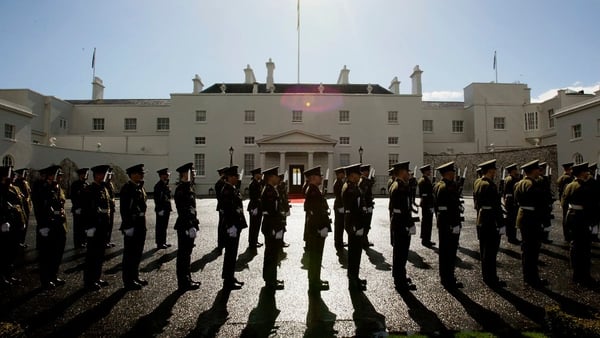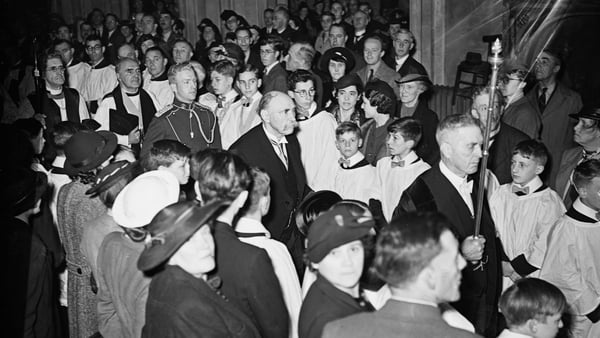Analysis: the reticence to commemorate the day Ireland became a republic is down to the complexities and controversies of our history
75 years ago on April 18th 1949, a significant milestone in Irish history occurred as the nation formally severed ties with the British Commonwealth. With the Republic of Ireland Act, which provided the legal basis for the establishment of a new Republic, coming into effect, a fresh chapter opened in Ireland's independent nationhood. The occasion was heralded by newspapers reporting on a day of impressive ceremony, described as a moment of "nationwide rejoicing, with all the pomp and pageantry the country can muster."
But despite the initial fervour surrounding the event, any envisioned annual celebration of Republic Day failed to take root as an Irish tradition. Today, as with years past, this momentous anniversary slips by with scant official attention or recognition, highlighting a curious quiescence in the nation's commemorative calendar.
We need your consent to load this rte-player contentWe use rte-player to manage extra content that can set cookies on your device and collect data about your activity. Please review their details and accept them to load the content.Manage Preferences
From RTÉ Archives, recording of Minister for External Affairs Seán MacBride TD addressing the nation on April 18th 1949, the day Ireland left the Commonwealth and officially became a Republic
Elsewhere, though, many other nations around the world commemorate their own respective republic days with enthusiasm and a sense of festivity. From grand parades to cultural events to community parties, these celebrations serve as vibrant expressions of national identity and pride, highlighting the sovereignty and self-determination of each nation.
There are 195 countries in today's world and 159 of them incorporate the word 'republic' into their official names. Interestingly, this count excludes one of the most prominent republics globally, namely the United States of America, where the term is absent from its official title. These republics often mark their own national, independence, or republic day, celebrating their sovereignty and commemorating the journey towards self-governance.
While the US does not use the actual designation Republic Day, Independence Day is a very close equivalent. The Fourth of July is a federal holiday which commemorates the country's declaration of independence from British rule in 1776 and the establishment of the United States of America as a sovereign republic. Similarly, July 14th, celebrated as Bastille Day, is effectively France's Republic Day, commemorating the French Revolution and the Storming of the Bastille, which occurred on July 14th 1789. Bastille Day is a national holiday in France and is celebrated with military parades, fireworks, parties and cultural festivities to mark the birth of the French Republic.
We need your consent to load this rte-player contentWe use rte-player to manage extra content that can set cookies on your device and collect data about your activity. Please review their details and accept them to load the content.Manage Preferences
From RTÉ Radio 1's History, historian Prof Diarmuid Ferriter asks if we should celebrate 'Republic Day' as a state event on April 18th, the anniversary of Ireland becoming a Republic in 1949
In countries that do use the specific designation Republic Day, its timing and character can take on different shapes, though military parades are a predominant staple in most countries. In Italy, Festa della Repubblica occurs on June 2nd to mark the day in 1946 when the Italian population voted in a referendum to abolish the monarchy and establish the Italian Republic.
At the official ceremonies in Rome, the Italian flag is solemnly raised at the Altare della Patria (Altar of the Fatherland) monument and the President of the Republic pays homage to the Unknown Soldier by laying a laurel wreath at the Tomb. One spectacular tradition is the Frecce Tricolori (Tricolour Arrows) air show where the Italian Air Force performs synchronised flying manoeuvres, creating intricate formations in the green, white, and red of the Italian flag.
Republic Day in India is celebrated on January 26th each year, marking the date in 1950 when the Constitution of India came into effect, completing the country's transition to a democratic republic, free from British rule. Republic Day in India is also marked by military parades and cultural displays.
We need your consent to load this rte-player contentWe use rte-player to manage extra content that can set cookies on your device and collect data about your activity. Please review their details and accept them to load the content.Manage Preferences
From RTÉ News, report on an exhibition to mark 75 years of Ireland becoming republic
National celebrations in India previously featured children releasing colourful helium-filled balloons, often in the colours of the national flag, but this has generated criticism in recent years from those seeking greener celebrations. One of the main concerns is the use of non-biodegradable balloons, which can have a harmful environmental impact. Additionally, India also invites a chief guest from another country to attend the Republic Day parade as a symbol of diplomatic relations French president Emmanuel Macron was the chief guest this year.
Brazil marks Republic Proclamation Day on November 15th each year, commemorating the military coup in 1889 that ousted Emperor Pedro II and established the First Brazilian Republic, officially known until 1930 as the Republic of the United States of Brazil. While it's a public holiday, Republic Day is a quieter affair compared to Brazil's Independence Day celebrations on September 7th, known as Sete de Setembro. This annual event honours Brazil'ss Declaration of Independence from the United Kingdom of Portugal, Brazil, and the Algarves. It's marked with patriotic displays and military parades across the country, with Brasilia hosting a notable civil-military parade.
In Turkey, Republic Day celebrations actually span 35 hours, beginning at 1pm on October 28th and culminating in major ceremonies the next day. Last October marked a significant milestone as Turkey celebrated its centenary nationwide. The republic was established by Mustafa Kemal Atatürk, a general turned politician who transformed the remnants of a diverse Islamic empire into a streamlined Anatolian republic, aiming to align it more closely with Europe.
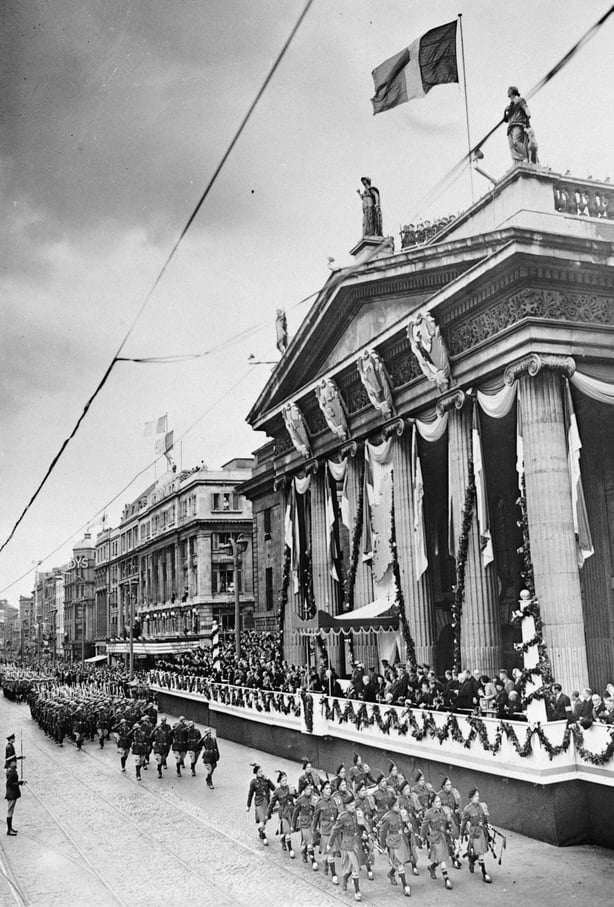
While Ireland currently lacks a designated Republic Day, global experiences suggest a reasonable case could be made for its establishment. Arguments in favour of a Republic Day would include the proposition that such a national occasion could underpin unity, identity and democratic values among citizens.
Such a celebration would not only cultivate pride, but also serve as a poignant tribute to the sacrifices made for independence, reinforcing the nation's commitment to democracy. While republic days worldwide often serve as symbols of democratic values, it's worth noting that some fundamentally anti-democratic regimes have also deployed them to shore up their power.
In a modern democracy like Ireland, a Republic Day holds the potential to go beyond symbolism and history, actively promoting civic engagement and deepening citizens' understanding of their rights and responsibilities. Ultimately, one could argue that the establishment of a Republic Day presents a meaningful opportunity for Ireland to strengthen its democratic fabric, foster civic engagement and unite its citizens in shaping a brighter future.
We need your consent to load this rte-player contentWe use rte-player to manage extra content that can set cookies on your device and collect data about your activity. Please review their details and accept them to load the content.Manage Preferences
From RTÉ Radio 1's Today with Claire Byrne, Prof Diarmaid Ferriter on the declaration of an Irish Republic in 1949
So why does Ireland not have a republic day? The answer lies in the complexities and controversies of Irish history. To return to 1949 and our first and only Republic Day celebrations, these were mired in controversy. The state's then largest political party, Fianna Fáil, believed that the Fine Gael-led Government's declaration of a republic was motivated solely by a desire to steal their republican clothes.
Éamon De Valera declined an invitation extended to him by Taoiseach John A. Costello to attend the official ceremonies to mark the State's new status on the basis that the new Republic was not an all-Ireland entity. "Celebrations such as those now proposed ought to be reserved until the national task which we have set ourselves is accomplished", wrote De Valera. "We still believe that public demonstrations and rejoicings are out of place and are likely to be misunderstood so long as that task remains uncompleted and our country partitioned."
Partition continues to cast a shadow over Ireland's lack of an official Republic Day. Easter Monday and January 21st stand out as potential dates for such a celebration, coinciding respectively with significant events like the 1916 Rising and the first session of Dáil Éireann in 1919. However, in our post-Good Friday Agreement society with a greater emphasis on a shared island, Unionist reluctance in Northern Ireland towards republican commemorations, rooted in historical (and often militant) opposition to the British crown, remain a notable consideration.
We need your consent to load this rte-player contentWe use rte-player to manage extra content that can set cookies on your device and collect data about your activity. Please review their details and accept them to load the content.Manage Preferences
From RTÉ Radio 1's Arena, Louise Lowe from Anu theatre company on The Party to End All Parties set on the night that Ireland became a Republic in 1949
An alternative suggestion anchored in Irish constitutional history might be either July 1st or December 29th. Bunreacht na hÉireann came into force on the latter date in 1937 following a state-wide plebiscite held on July 1st that year, but this plebiscite did not extend to people living in Northern Ireland.
While superficially appealing, the introduction of a Republic Day in Ireland could potentially deepen existing societal divisions, particularly in communities in Northern Ireland with entrenched political or religious tensions, leading to feelings of exclusion among certain groups. Without substantive efforts to address underlying issues such as sectarianism and further groundwork to build support for a Border Poll as provided for in the Good Friday Agreement, a new Republic Day celebration may be seen as a hollow gesture, and risks undermining efforts towards reconciliation and social cohesion.
Careful consideration of the timing and context, then, is crucial to ensure that a Republic Day or any other form of a new national day serves as a meaningful catalyst for positive change rather than a mere distraction from pressing issues or a superficial display of nationalism.
We need your consent to load this rte-player contentWe use rte-player to manage extra content that can set cookies on your device and collect data about your activity. Please review their details and accept them to load the content.Manage Preferences
From RTÉ Archives, Orla Guerin reports for RTÉ News in 1990 about the reunification of Germany
As demographic shifts make a united Ireland a realistic possibility in the medium-term, Ireland can draw lessons from Germany's successful reunification process. During the era of East and West Germany, separate national celebrations were held. In the German Democratic Republic (GDR), October 7th marked National Day, commemorating its founding in 1949, with state-sponsored festivities and pro-communism demonstrations. Meanwhile, in the Federal Republic of Germany, May 23rd celebrated the promulgation of the Basic Law in 1949, emphasising democratic principles post-World War II.
But in the aftermath of the fall of the Berlin Wall, both national days were replaced by the Day of German Unity - Tag der Deutschen Einheit - on October 3rd, which honours the reunification of East and West Germany in 1990. This significant holiday is observed with various events nationwide, emphasising unity, reconciliation, democracy, peace and human rights. As Ireland looks ahead, aspiring and working towards a similar island-wide celebration would carry immense significance and resonance, transcending any ambitions for a one jurisdiction Republic Day.
Follow RTÉ Brainstorm on WhatsApp and Instagram for more stories and updates
The views expressed here are those of the author and do not represent or reflect the views of RTÉ
